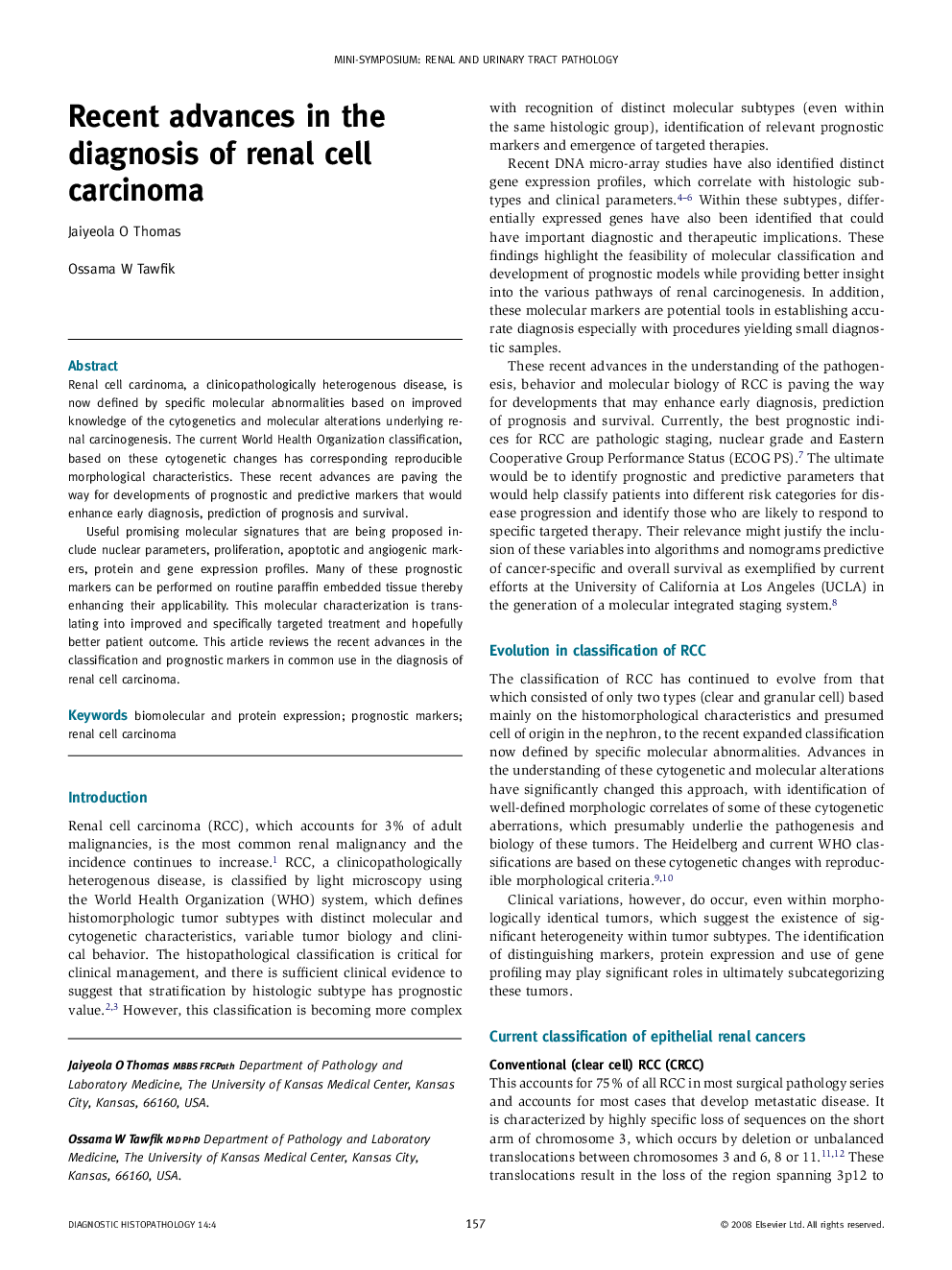| Article ID | Journal | Published Year | Pages | File Type |
|---|---|---|---|---|
| 4131756 | Diagnostic Histopathology | 2008 | 7 Pages |
Renal cell carcinoma, a clinicopathologically heterogenous disease, is now defined by specific molecular abnormalities based on improved knowledge of the cytogenetics and molecular alterations underlying renal carcinogenesis. The current World Health Organization classification, based on these cytogenetic changes has corresponding reproducible morphological characteristics. These recent advances are paving the way for developments of prognostic and predictive markers that would enhance early diagnosis, prediction of prognosis and survival.Useful promising molecular signatures that are being proposed include nuclear parameters, proliferation, apoptotic and angiogenic markers, protein and gene expression profiles. Many of these prognostic markers can be performed on routine paraffin embedded tissue thereby enhancing their applicability. This molecular characterization is translating into improved and specifically targeted treatment and hopefully better patient outcome. This article reviews the recent advances in the classification and prognostic markers in common use in the diagnosis of renal cell carcinoma.
